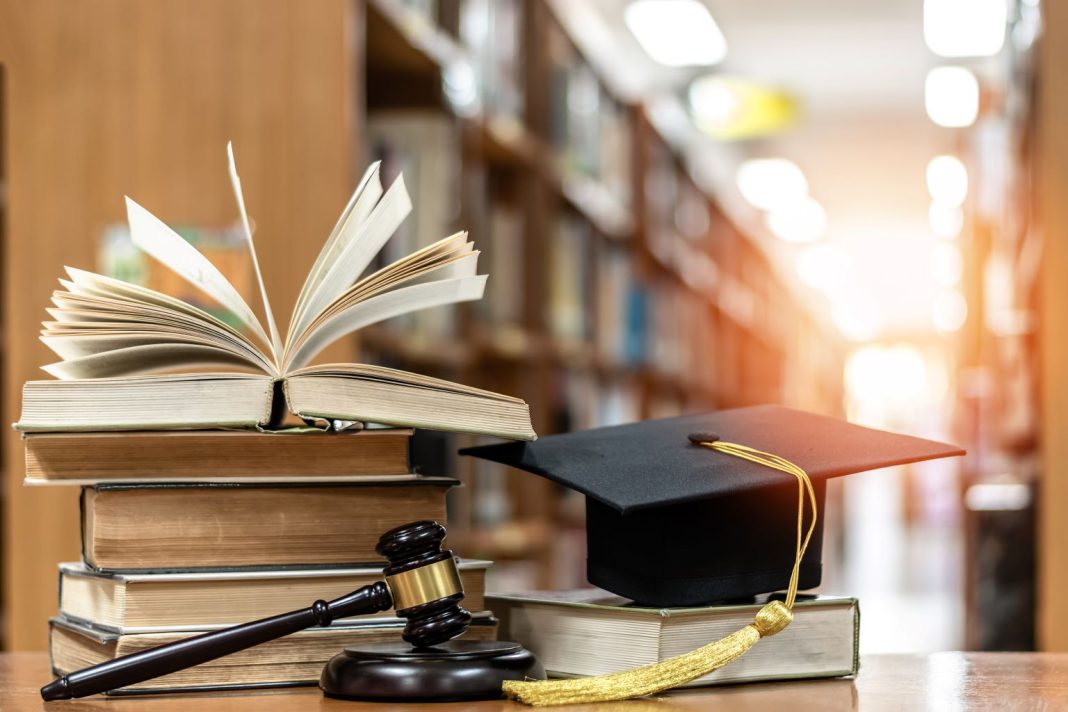Meet the next generation of lawyers making a difference in policy, advocacy and legal innovation as selected by The National Jurist editors.
From developing AI tools that automate expungements to drafting policies that protect juvenile offenders, law students are driving meaningful change. They’re enhancing campus safety, expanding pro bono opportunities, advocating for human rights and promoting mental wellness.
To recognize these efforts, we invited each law school to nominate one student for possible selection as a Law Student of the Year. This year’s nominees exhibited diverse achievements, while all sharing commitment to the law.
After careful review, National Jurist editors selected five standout students, along with five honorable mentions.
Their work spans criminal justice reform, access to justice and equitable legal representation. Some have built tech solutions for the legal field, while others have led legislative initiatives, grassroots advocacy or global human rights efforts. Many have also championed mentorship and inclusivity within the legal community.
Congratulations to these future leaders who are already helping to shape the legal profession.
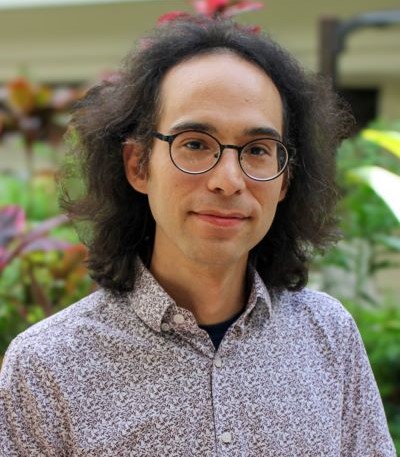
Benjamin Leider
3L, University of Hawaiʻi at Manoa -William S. Richardson School of Law
Prior to law school, Leider spent 10 years in graduate school studying philosophy. Graduating during the pandemic, he found himself without many job options.
“My father is a retired lawyer, and the law seemed interesting,” Leider said. “I decided to pursue a law degree.”
Philosopher turned law student, Leider proved to be a pioneer in the field of legal tech.
After completing a coding course at the law school, Leider signed on to be a research assistant, helping to build tech applications that would improve access to justice in Hawaiʻi.
He worked with Matthew Stubenberg, a professor at UH Richardson Law School, to build a Chrome extension that helps automate the expungement process. The tool determines a case’s expungement eligibility and then populates the necessary paperwork. It is used by pro bono attorneys and the public defender’s office to increase the number of people expungement clinics can serve.
Leider was able to create logic trees for expungement law, determine what information would be needed, code the application and make the app work.
The tool’s soft launch was in September 2024 at a free legal clinic where it helped 72 people with expungement. After seeing the success of the app, the Public Defender’s Office requested an added function that could automate bench warrant recall. Leider updated the tool earlier this year.
Leider understands the potential that artificial intelligence can bring into the legal field. On his own time, he is developing an AI mock trial simulator. The user uploads the mock trial materials, and the program generates a mock trial that the user can participate in. When completed, this application will allow users to practice different arguments and learn about potential objections.
Leider has shown that the lawyer of tomorrow is going to need to understand technology in a new way. After graduation, he plans to continue creating tech tools for the legal field.
“Look at the job market and your skills; choose your path accordingly,” Leider said. “If you want to make a difference in the world or in society, go with what moves you, and be determined.”
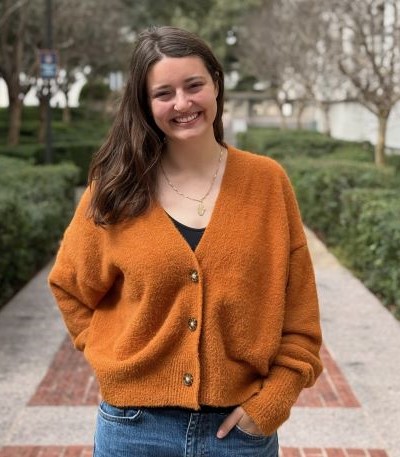
Emma Jane Hopper
3L, University of Texas School of Law
Hopper, the child of a probate lawyer, knew that she wanted to pursue a career in probate law.
She chose University of Texas School of Law in Austin but was disappointed as a first-year to learn the law school did not offer pro bono opportunities in her planned practice area: estate, trust and fiduciary litigation.
Hopper approached the Mithoff Pro Bono Program at Texas Law in the spring of her first year with a plan for establishing will-writing clinics in Austin. During her project’s first year, five wills clinics were held at public libraries in the area.
While interning at the Travis County Probate Court during the summer of 2023, Hopper learned of the need for court-appointed visitors to do annual visits with people living under guardianship and write reports on their conditions and care. She partnered with the Court Visitor Office in the fall of 2023 to launch a pro bono project for law students to complete five court visitor reports per semester.
Hopper also assumed responsibility for a project that expands alternatives to guardianship and offers medical powers of attorney, statutory durable powers of attorney, psychiatric advance directives and guardian designations. As part of the project, she hosted presentations about alternatives to guardianship at local transition fairs.
Hopper also founded the student organization PGLETS (Probate, Guardianship Law, Estates, Trusts Society). In the fall of her 2L year, she organized two panels on probate and estate planning and a mixer with the school’s estate planning Continuing Legal Education program.
“My advice for law students is to focus on learning the materials and not so much on the competitiveness of law school,” Hopper said. “I’m a collaborative learner, which has helped me focus on understanding the law.”
After graduation, Hopper plans to stay connected with the Mithoff Program and its pro bono work to help move the clinics forward.
She has also become interested in national security law.
“What I find interesting in national security law are issues related to cybersecurity and covert financial transactions,” she said. “On the litigation side, I want to know how the world fits together and how humans interact with one another.”
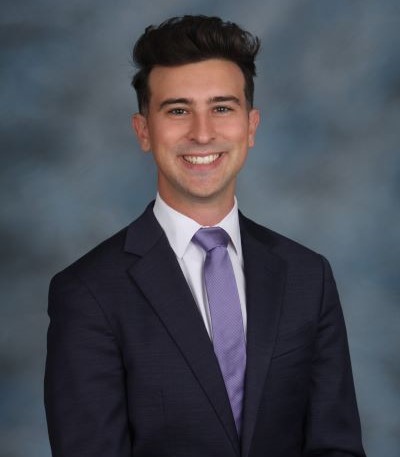
Jacob Blott
3L, University of Georgia School of Law
Blott is a future Double Dawg, a student who has earned both an undergraduate and an advanced degree from University of Georgia. He is a first-generation law student and a member of OUTLaw, the school’s student organization supporting LGBTQIA+ students.
Blott has worked as a circulation assistant in the Alexander Campbell King Law Library for nearly seven years. During that time, he has made it his mission to assist students with their daily academic needs.
He also helped create the law school’s professional closet, where students can borrow appropriate clothes for job interviews, and the free Marie Mize Student Food Pantry.
In a variety of roles, Blott has collaborated with faculty, students and staff to improve the environment and the culture at the school while promoting both physical and mental wellness.
One of his efforts was the Student Bar Association’s partnership with UGA’s Ramsey Student Center to offer free yoga classes for law students.
He worked with Dan Silk, UGA School of Law associate vice president for public safety, to present lectures and classes on personal safety after a young woman named Laken Riley was assaulted and killed while jogging on the UGA campus.
Even something as small as Blott ensuring that the law school provides free printing for students during finals has been an important contribution to student well-being.
During the Class of 2027’s orientation, Blott was the lead speaker, welcoming incoming first-years and speaking about his experiences at UGA School of Law.
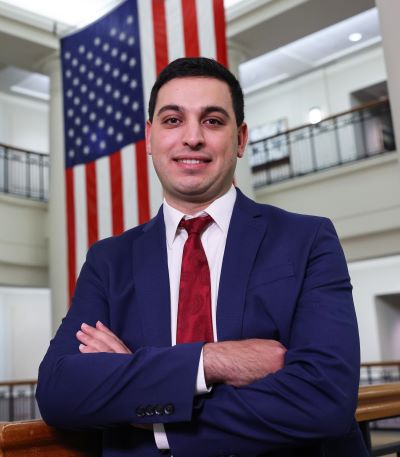
Omar Hajajra
3L, Suffolk University Law School
Hajajra grew up in a West Bank camp between Hebron and Bethlehem as a third-generation refugee.
At 16, he won the Kennedy-Lugar Youth Exchange and Study scholarship, sponsored by the U.S. State Department’s Bureau of Educational and Cultural Affairs.
His host family in Hanover, New Hampshire, has supported him for his continued stay in the U.S., during which he has become a resident and then a U.S. citizen.
In 2023 and 2024, Hajajra worked for the State Department’s Bureau of Conflict and Stabilization Operations, researching and making recommendations to help prevent and respond to conflicts and atrocities.
As an intern at Sweden’s Raoul Wallenberg Institute, he edited submissions for the World Human Rights Cities Forum in South Korea.
At Suffolk University Law School in Boston, he worked on implementing a landmark Inter-American Court ruling won by the school’s Human Rights & Indigenous Peoples Clinic. It was the first international case recognizing Indigenous peoples’ right to operate their own media.
He clerked for Judge Saadet Yüksel at the European Court of Human Rights in Strasbourg, France, and helped organize a human rights conference that gathered top judges from the 46 Council of Europe member states.
He is the executive director of Suffolk Law’s Ukraine Accountability Project, where he leads meetings with international prosecutors and heads a team documenting Russian war crimes. He also co-leads logistics and programming at Suffolk Law’s comparative international law program in Madrid.
After graduation, Hajajra plans to work in human rights and conflict resolution or become an adviser on the law of armed conflict.
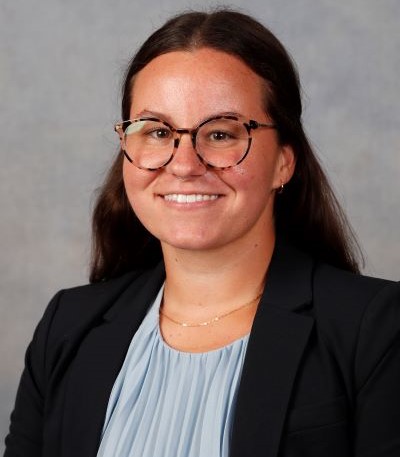
Bryanna Farmer
3L, Campbell University Norman Adrian Wiggins School of Law
Farmer is a first-generation college and law student. As an undergrad, she interned in a public defender’s office in Gastonia, North Carolina.
At Campbell Law, she has maintained an unwavering commitment to advocating for children.
A third-year law student, Farmer has developed initiatives on restorative justice, juvenile justice and educational equity. They included creating a novel pro bono service for children with undiagnosed disabilities who find themselves entangled in the juvenile justice system; helping to re-start a long-dormant student organization, the Education Law & Policy Society; and running a book drive to collect age-appropriate books for a local youth detention center.
In addition, Farmer enrolled in Campbell Law’s Restorative Justice Clinic, where she worked in juvenile and adult facilities. She had the adult offenders write letters to the juvenile offenders offering love, support and hope and encouraging them to change paths.
She also participated in the law school’s Education Equity Clinic, where she was the lead student counsel on behalf of a child in a detention facility. She advocated to protect her client’s educational rights and clarify the educational rights of all young people in juvenile detention facilities in North Carolina.
Farmer had the honor of presenting a Continuing Legal Education presentation for lawyers at the North Carolina Office of Juvenile Defender’s annual Youth Defender Forum, which is a rare experience for a law student.
Honorable Mentions
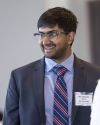
Aditya Krishnaswamy, 3L, Georgia State University College of Law
Served as fundraising chair for the Public Interest Law Association and as co-president of the Student Health Law Association, organizing events and pro-bono opportunities for students. Raised more than $30,000 for student stipends for unpaid public-interest internships.

August Golden, 3L, Fordham University School of Law
Co-facilitated Law Student Congress’ annual meeting at the 2023 Lavender Law Conference. Organized a session at the 2024 Lavender Law Conference. Co-founded a task force within OUTLaws called Advocates for Trans* Law Students, which became a recognized student organization in 2023 and the first trans law student group in the nation.

Isaiah Gonzales
3L, Vermont Law and Graduate School
Created a partnership between the student bar association and Vermont Law alumni to establish a student mentoring program through the Legal Mentor Network. Organized a celebration called Raíces Verdes: Latinos Shaping Vermont.
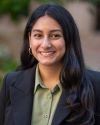
Bianca Taipe
3L, Temple University – James E. Beasley School of Law
Aided in fundraising for the Student Public Interest Network and played a role in revising eligibility requirements. Organized an immigration law career panel. Co-authored a report on conditions at an immigration processing center in Pennsylvania.

Randi Alt
3L, Jacksonville University College of Law
As a member of the school’s inaugural class, Alt was instrumental in founding the new school’s organizations and associations, which included the mock trial team and the law review.
This article appears in the 2025 Spring issue of The National Jurist.

